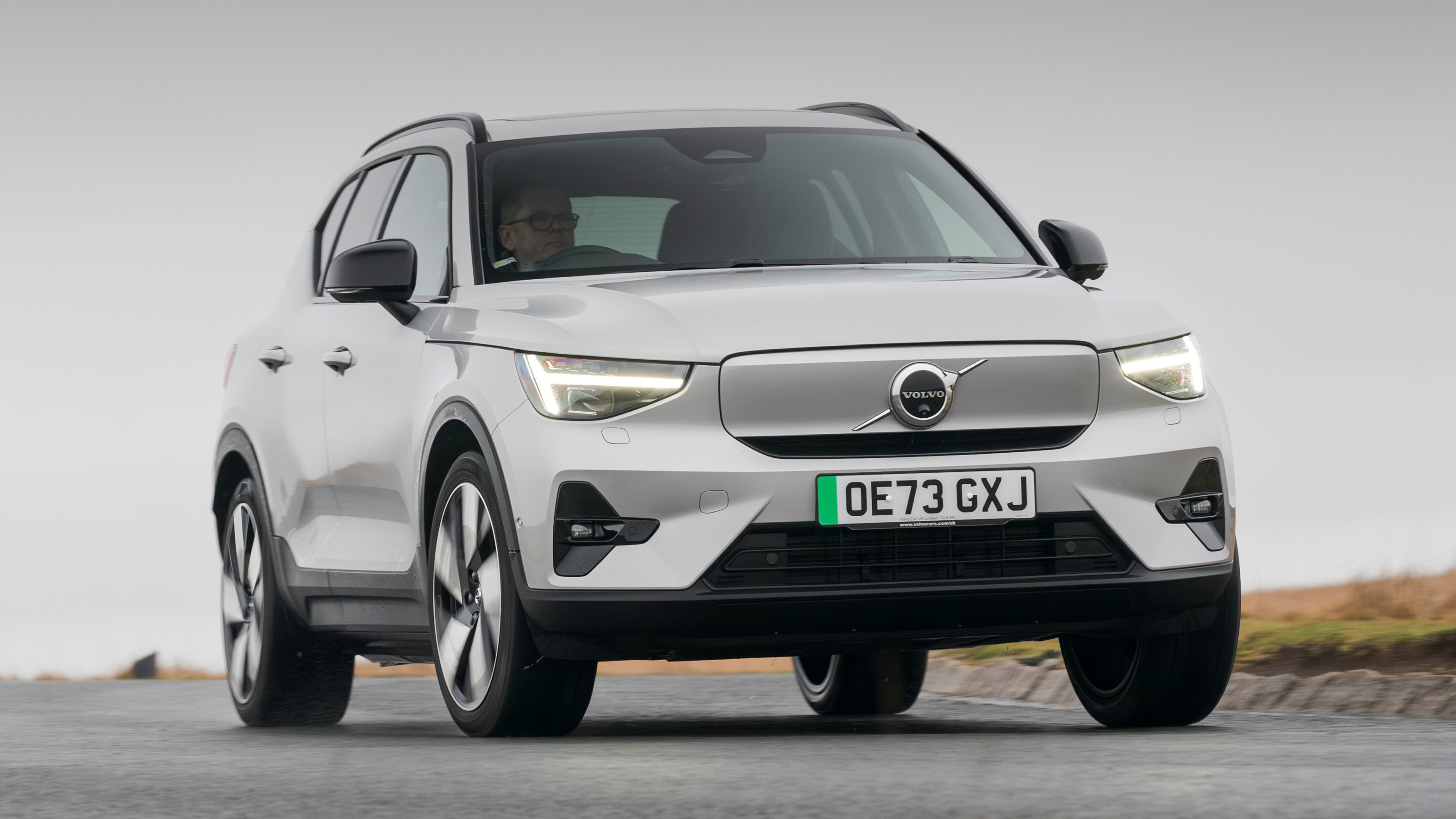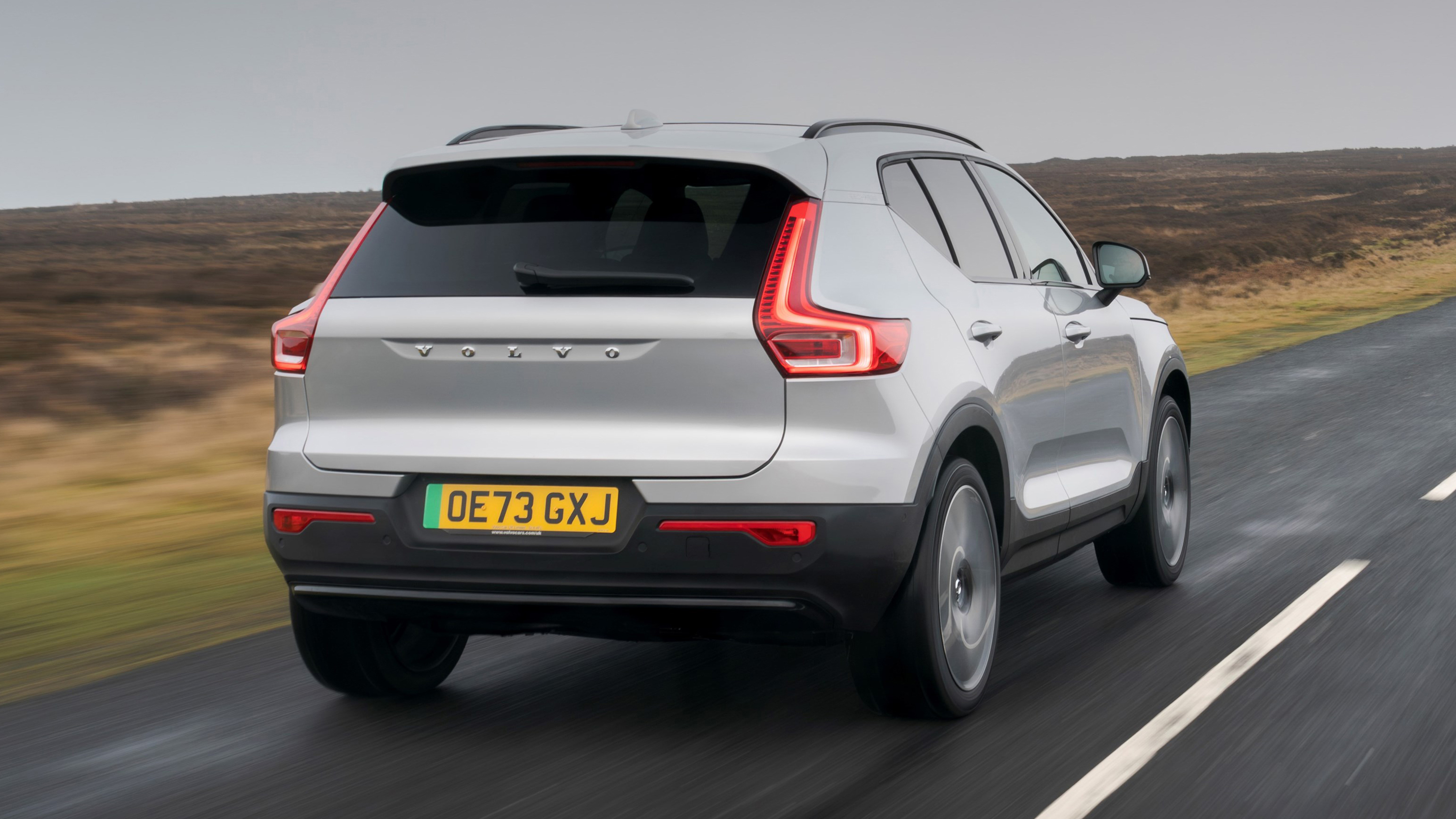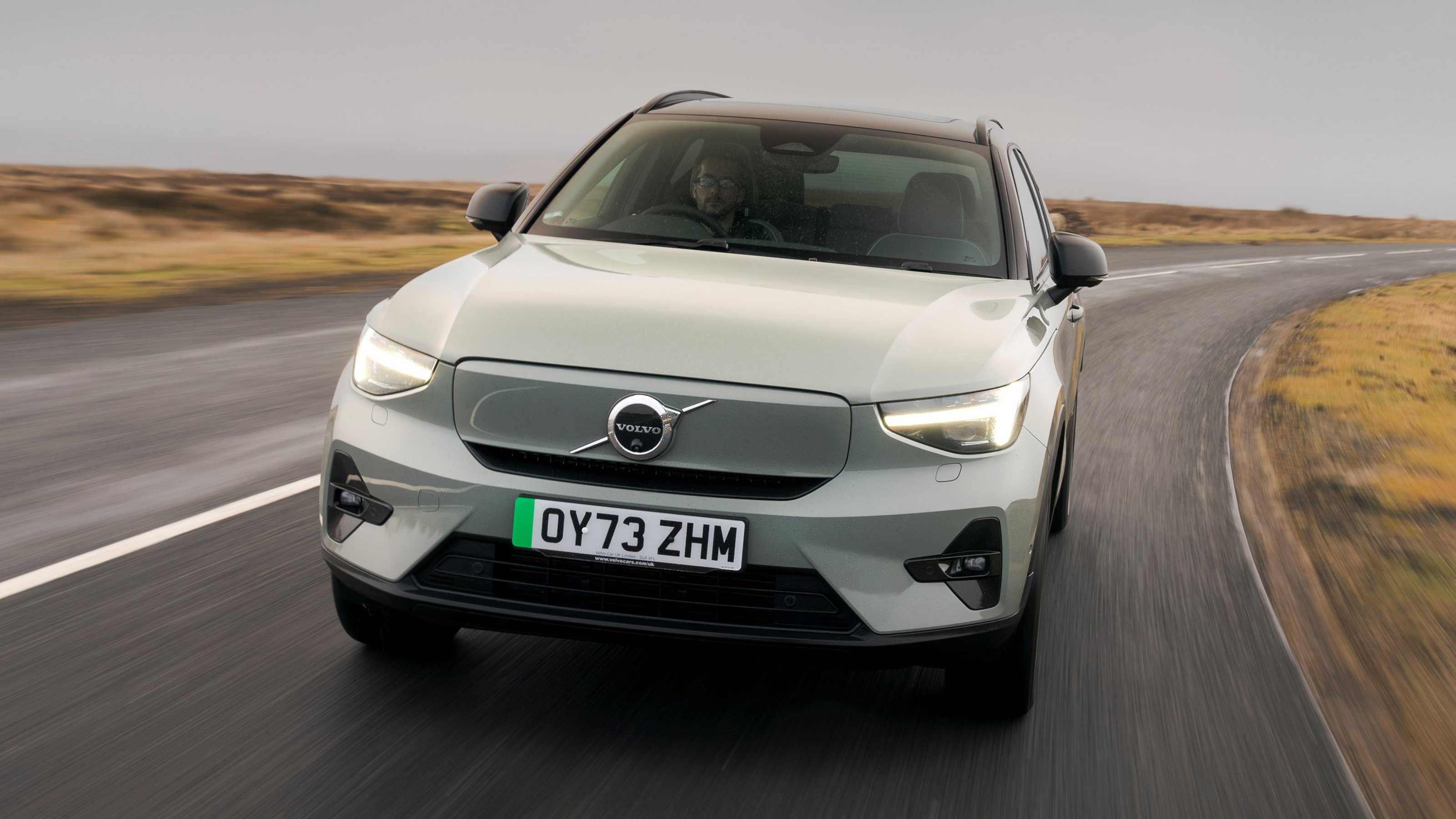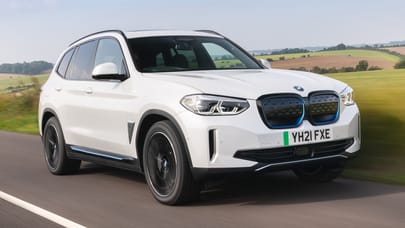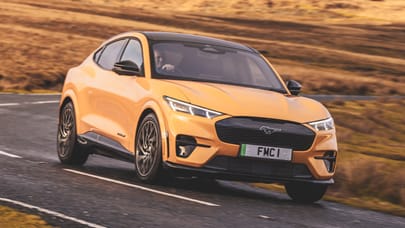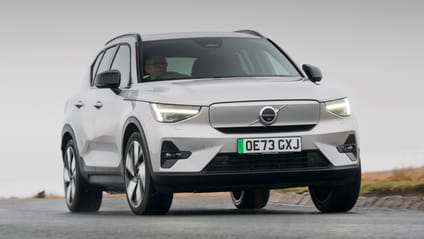
Good stuff
Design, overall build quality, performance, handling and ride
Bad stuff
Expensive for a ‘small’ SUV, is that a £50k-worthy interior?
Overview
What is it?
The range is steadily growing now, what with the Swedish company’s ambitions for zero emission, but back when this car was called the XC40 Recharge it was Volvo’s first electric car. Based on the XC40 crossover, it went on sale in 2020, got refreshed in 2023 and was renamed the EX40 in 2024.
Nowadays Volvo has the EX90 electric seven-seater, the EX30 tiddler SUV and of course the coupe version of this, called the EC40. Coming soon will be the ES90 electric executive saloon and the company will almost have a clean sweep of the range.
The EX40 is a competitor for the likes of the BMW iX3, Ford Mustang Mach-E, Volkswagen ID.4, Hyundai Ioniq 5, Skoda Enyaq iV, Nissan Ariya, and various others. Oh, and the Polestar 2, with which it shares some of its underbits.
It was pricey at first, but the situation has been slightly improved with the introduction of single motor entry cars (as opposed to the fancier twin motor version) that now starts the range at around £47k.
Is this just a normal XC40 with an e-motor shoved in?
Sort of yes, but also sort of no. The XC40 was designed from the beginning to take an electric powertrain, so it doesn’t suffer from the usual compromises that can happen by cross-contaminating DNA. It arguably doesn’t feel quite special enough inside to justify the price tag that its fancy electric tech demands, but to be fair to Volvo it throws in a lot of standard equipment to make you feel better about it.
Let’s talk numbers.
You’ve got the choice of three powertrain setups – Single Motor, Single Motor Extended Range and Twin Motor. These come with 69kWh, 78kWh and 82kWh batteries respectively.
The entry level Single Motor comes with a 235bhp, 310lb ft motor that manages 295 miles of official WLTP range. The Extended Range car has 248bhp and 310lb ft available and will get up to 342 miles from a full battery. Both of these RWD models will get from 0–62mph in 7.3secs.
The range topper is the 402bhp, 494lb ft Twin Motor car that comes with AWD (which it needs) and gets to 62mph in 4.8secs. That car manages up to 332 miles of official range. In practice it’s further away from the Extended Range car than it looks on paper, simply because it’s impossible to resist its accelerative powers. We reckon the Single Motor Extended Range car should be good for around 300 miles of real world range.
The Single Motor will charge at a peak rate of 180kW, to get from 10–80 per cent charge in 27 minutes. The Single Motor Extended Range and Twin Motor cars will charge at 205kW for a 28-minute 10–80 per cent charge.
How does the EX40 drive?
It’s all very sensible, unless you’re in the ridiculously powerful twin motor, in which case it’s not very sensible. The EX40 is an easy car to live with day to day, if you’re worried about switching to electric.
The Plus-spec trim has a keyless entry system that means you can just leave the key in your pocket and don’t even need to press a start button, it just registers the pressure of your posterior on the driver’s seat and it’s ready to go. This is the pointiest and squirtiest of cars.
The Twin Motor car offers bonkers performance from a family crossover, but the whole range is impressively refined. The interior is decently put together with some interesting trim options, while the ride is smooth and sophisticated, a quality that’s amplified in the Single Motor versions. You’ll be spoiled for other cheaper cars.
Our choice from the range

What's the verdict?
We’ve loved the XC40 from the start but had a few reservations about the powertrains. Not anymore. In EX40 guise the car’s worthier attributes – its thoughtful packaging, sense of wellbeing and design – are amplified. Like the Tesla Model 3 (and related Polestar 2), the XC40 Recharge makes an almost irresistible case for electrification.
Sure it's not particularly cheap, but it’s loaded with kit and the Twin Motor version has enough pace and balance on a good road to keep much more overtly sporting cars honest. The semi-skimmed Single Motor is simply a great day-to-day family car.




